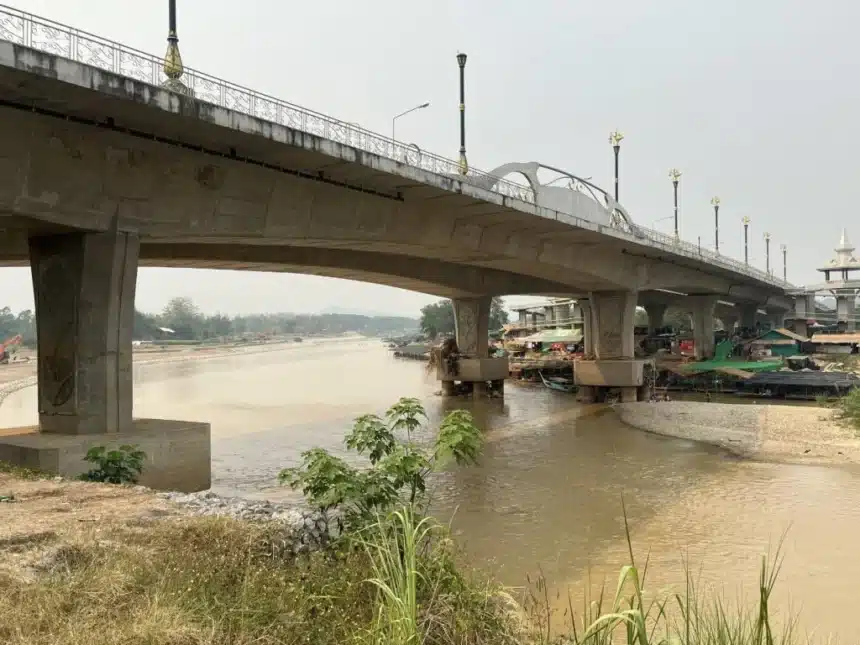On April 6, the Governor of Chiang Rai, Mr. Charin Thongsuk, chaired a meeting to discuss solutions for water quality issues in the Mae Kok River follows water quality tests conducted on March 24 at three locations in Chiang Rai.
The samples were collected from Ban Pong Na Kham, the bridge crossing the Mae Kok River in Doi Hang, and the Mae Fah Luang Bridge near the provincial hall.
Results showed organic pollution at Ban Pong Na Kham exceeded standards, while water quality across all locations was classified as fair to degraded. Environmental experts consider this manageable but requiring attention.
Tests for heavy metals such as lead, mercury, and manganese were within acceptable levels. However, arsenic was found to exceed the standard of 0.01 mg/L at all three locations:
- Ban Pong Na Kham: 0.013 mg/L
- Mae Kok River Bridge, Doi Hang: 0.012 mg/L
- Mae Fah Luang Bridge: 0.012 mg/L
The contamination levels are lower than those previously reported in Mae Ai District, Chiang Mai, where 0.026 mg/L of arsenic was detected near the Myanmar border.
The Governor has instructed the Pollution Control Office Region 1 to increase the frequency of water sample collection along the entire Mae Kok River. This includes areas from the Chiang Mai-Chiang Rai border through districts such as Mueang Chiang Rai, Wiang Chai, Wiang Chiang Rung, Doi Luang, and Mae Chan, before the river flows into the Mekong River in Chiang Saen.
Relevant agencies, including the Public Health Office, Provincial Waterworks Authority, Medical Science Centre, and local administrative organizations, have been asked to assess water usage along the river.
This includes water used for agriculture, industry, tourism, and domestic purposes. A report summarizing findings is expected by April 9 to inform further action. Officials recommend conducting water sampling monthly or bi-monthly to monitor changes.
Authorities in Chiang Rai have issued warnings advising residents not to drink or come into direct contact with water from the Mae Kok River. Anyone experiencing symptoms such as rashes or vomiting is urged to seek medical attention.
Officials confirmed that tap water systems meet safety standards and remain safe for consumption.














